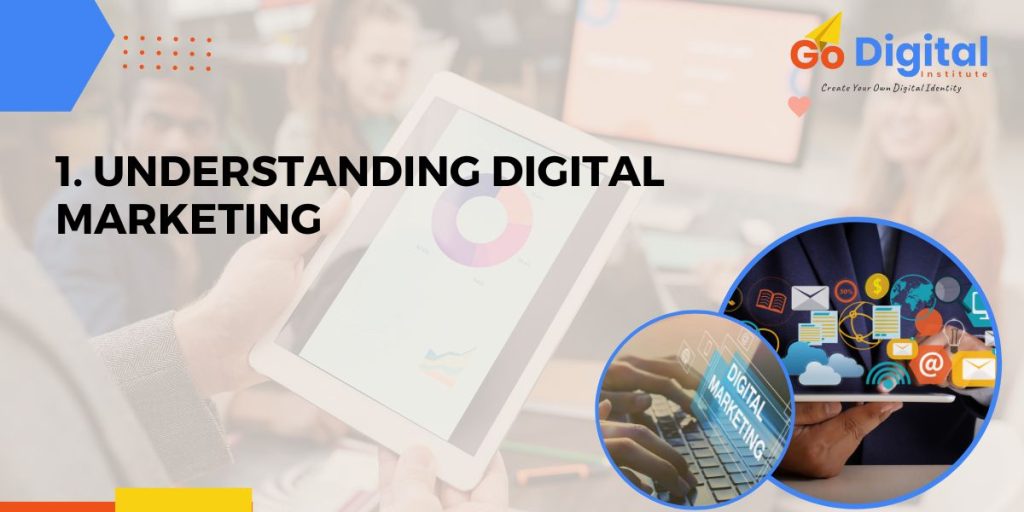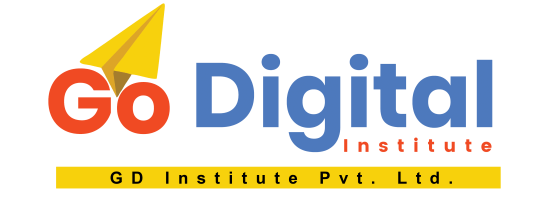Introduction
In the modern era of technology, businesses are increasingly realizing the importance of establishing a strong online presence. Digital marketing has emerged as a powerful tool for effectively reaching and engaging with the target audience, generating leads, and driving business growth. This comprehensive guide aims to delve into the complexities of digital marketing, including its various components, strategies, and the advantages it offers. Additionally, we will explore the significance of enrolling in a digital marketing course in Mumbai that provides placement opportunities. Such courses equip aspiring professionals with the necessary skills and knowledge to excel in this dynamic field.

1. Understanding Digital Marketing
Digital marketing involves the promotion of products or services through digital channels like search engines, social media, email, websites, and mobile applications. It encompasses a wide range of tactics and techniques aimed at attracting, engaging, and converting potential customers into loyal patrons. Key components of digital marketing include search engine optimization (SEO), pay-per-click (PPC) advertising, social media marketing, email marketing, content marketing, and more. These strategies work together to create a cohesive online marketing campaign that drives targeted traffic and enhances conversions.

2. Importance of Digital Marketing for Businesses
Digital marketing has revolutionized the way businesses connect with their target audience. Here are some key reasons why it has become an essential aspect of modern marketing:
Enhanced Reach: Digital marketing enables businesses to reach a global audience without geographical limitations, allowing them to tap into new markets and expand their customer base.
Cost-Effectiveness: Compared to traditional marketing methods, digital marketing offers a cost-effective approach. Small businesses can leverage digital platforms to compete within their budgetary constraints.
Measurable Results: A significant advantage of digital marketing is the ability to accurately track and measure campaign performance. Analytical tools provide valuable insights into customer behavior, allowing businesses to refine their strategies for optimal results.
Personalization: Digital marketing empowers businesses to tailor their messaging and offerings based on customer preferences, enhancing the customer experience and fostering stronger relationships.

3. Pursuing a Digital Marketing Course in Mumbai with Placement
Mumbai, known as India’s financial capital, has witnessed remarkable growth in the digital marketing industry. To meet the rising demand for skilled professionals, numerous institutes offer comprehensive digital marketing courses in Mumbai that provide placement assistance. These courses provide a structured learning environment, equipping students with the necessary theoretical knowledge and practical skills required to excel in the field.
Course Curriculum: A well-designed digital marketing course covers various aspects, including SEO, social media marketing, content marketing, email marketing, analytics, and more. It provides a holistic understanding of the digital marketing landscape and hones specific skills required for different job roles.
Practical Exposure: Reputed institutes offer hands-on training, enabling students to apply their learning to real-world scenarios. Practical assignments, case studies, and live projects help develop a practical mindset and enable students to gain confidence in implementing digital marketing strategies.

4. Digital Marketing Strategies and Techniques
Digital marketing encompasses a wide range of strategies and techniques that businesses can employ to achieve their marketing goals. Here are some commonly used strategies:
Search Engine Optimization (SEO): SEO involves optimizing a website to improve its visibility and ranking on search engine results pages (SERPs). By utilizing relevant keywords, creating high-quality content, and implementing technical optimizations, businesses can attract organic traffic and increase their online presence.
Pay-Per-Click (PPC) Advertising: PPC advertising allows businesses to display ads on search engines or other websites and pay only when a user clicks on the ad. Platforms like Google Ads provide targeted advertising options, enabling businesses to reach their desired audience and drive traffic to their website.
Social Media Marketing: Social media platforms such as Facebook, Instagram, Twitter, and LinkedIn offer businesses an opportunity to connect with their target audience and build brand awareness. By creating engaging content, running targeted ad campaigns, and interacting with followers, businesses can generate leads and drive conversions.
Content Marketing: Content marketing involves creating and sharing valuable content like blog posts, articles, videos, infographics, and more to attract and engage a specific target audience. It helps establish businesses as industry experts, build trust, and drive organic traffic to their websites.
Email Marketing: Email marketing involves sending targeted emails to a subscriber list to nurture leads and build customer relationships. By delivering personalized and relevant content, businesses can drive conversions, promote products or services, and keep customers engaged.
Influencer Marketing: Influencer marketing leverages the popularity and influence of individuals with a large following on social media. By collaborating with influencers, businesses can reach their target audience more effectively and gain credibility through endorsements and recommendations.
Mobile Marketing: With the increasing use of smartphones, mobile marketing has become crucial. It involves optimizing websites and advertising campaigns for mobile devices, creating mobile apps, and utilizing SMS marketing to reach and engage with mobile users.

5. Advantages of Enrolling in a Digital Marketing Course in Mumbai with Placement
Enrolling in a digital marketing course in Mumbai that offers placement assistance can provide aspiring professionals with numerous benefits, including:
Industry-Relevant Skills: A digital marketing course equips students with the knowledge and skills required to excel in the field. They learn about the latest trends, tools, and techniques used in the industry, ensuring they stay up-to-date with the rapidly evolving digital landscape.
Practical Experience: Reputed institutes provide practical training, allowing students to apply their theoretical knowledge to real-world scenarios. Hands-on experience through assignments, projects, and internships helps develop a practical mindset and enhances employability.
Networking Opportunities: Digital marketing courses often provide networking opportunities, allowing students to connect with industry professionals, experts, and fellow students. These connections can lead to mentorship, job referrals, and collaborations in the future.
Placement Assistance: A course with placement assistance helps students secure job placements after completing their studies. Institutes have tie-ups with companies and agencies, providing students with access to job opportunities and increasing their chances of finding suitable employment.

